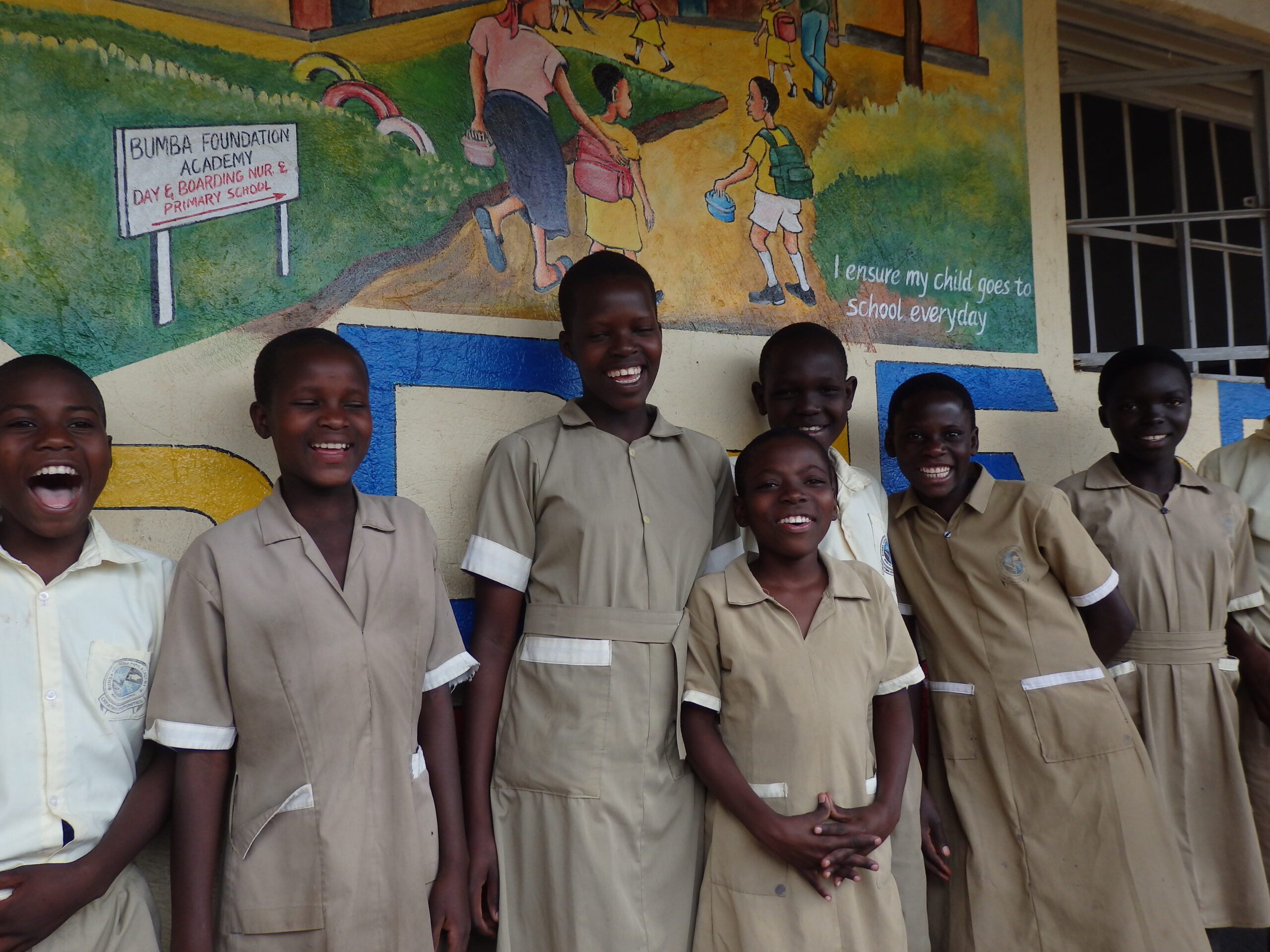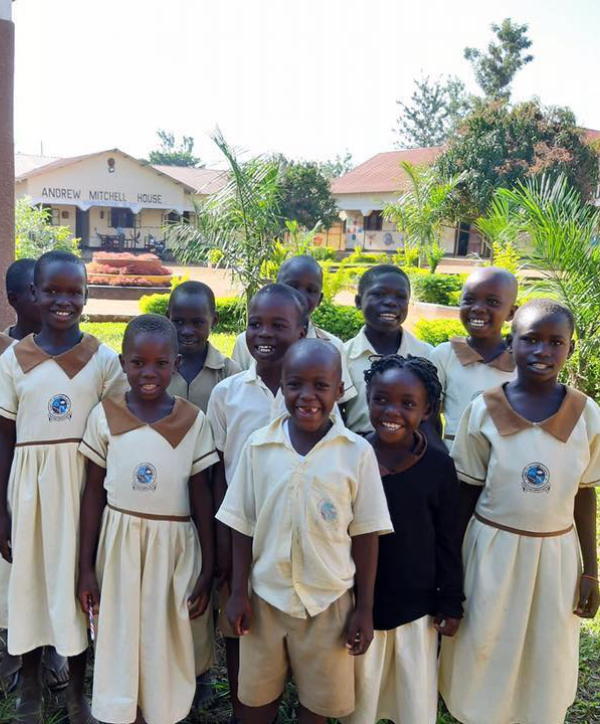About Us

How We Got Started
The Bumba Foundation is a small UK registered charity (established in 2012) following the trustees work in Uganda since 1997. The Bumba Foundation provides sustainable education opportunities to children in vulnerable areas of Uganda through innovative projects and community ownership with a focus on the reduction of poverty.
Our Focus
The Bumba Foundation was set up to provide access to education and create opportunities to inspire and develop young people and their communities, through sustainable educational projects.
Through the creation of our community schools and vocational centres, it allows young people regardless of their situation to gain the best academic and vocational education, appropriate for their needs.

Where We Work
We operate in Budaka and neighboring Districts in Eastern Uganda, which is ranked as one of the poorest districts in Uganda, with some of the highest levels of poverty, unemployment & low education quality, with 23.8% of children aged 10-17 years being illiterate and the district being ranked 76 out of 82 districts.
The government statistics highlight that over 39% of the population in Budaka live below the minimum poverty scale of 66p a day, resulting in them not having the funds for more than one meal a day, medical support, soap, clothing and education.

Addressing The Challenges
To address the challenges in Budaka and to fight famine, it is essential that the community can adapt to the changing environmental conditions and gain appropriate education, skills and knowledge in sustainable home farming. Uganda has one of the youngest populations in the world with over 75% of the population under the age of 35 years but only 15% of the 15-25 years age range have any employment.
With the majority of the community in Eastern Uganda reliant upon agriculture for an income and basic food security, the weather and limited agricultural training, has had a devastating effect on the community and increased poverty levels. To address these challenges, we are educating young people in primary education and agriculture, which is a key element in making the transformational change required to achieve long-term sustainability in reducing poverty and increasing community’s resilience to pandemics, environmental changes and instability.

Climate Change
The impact of climate change is having a devastating impact on communities in Uganda with unstable weather resulting in the traditional farming methods failing to support crops and leading to increased poverty. Through our projects we have created demonstration gardens with the additional implementation of tree planting, tropical plants, grasses, raised beds, water retention schemes and sustainable irrigation systems to create a micro climates, which is provide practical knowledge to the community, who are implementing this learning into their garden to manage the changing environment conditions.

Where We Work
We operate in Budaka and neighboring Districts in Eastern Uganda, which is ranked as one of the poorest districts in Uganda, with some of the highest levels of poverty, unemployment & low education quality, with 23.8% of children aged 10-17 years being illiterate and the district being ranked 76 out of 82 districts.
The government statistics highlight that over 39% of the population in Budaka live below the minimum poverty scale of 66p a day, resulting in them not having the funds for more than one meal a day, medical support, soap, clothing and education.

Addressing The Challenges
To address the challenges in Budaka and to fight famine, it is essential that the community can adapt to the changing environmental conditions and gain appropriate education, skills and knowledge in sustainable home farming. Uganda has one of the youngest populations in the world with over 75% of the population under the age of 35 years but only 15% of the 15-25 years age range have any employment.
With the majority of the community in Eastern Uganda reliant upon agriculture for an income and basic food security, the weather and limited agricultural training, has had a devastating effect on the community and increased poverty levels. To address these challenges, we are educating young people in primary education and agriculture, which is a key element in making the transformational change required to achieve long-term sustainability in reducing poverty and increasing community’s resilience to pandemics, environmental changes and instability.

Climate Change
The impact of climate change is having a devastating impact on communities in Uganda with unstable weather resulting in the traditional farming methods failing to support crops and leading to increased poverty. Through our projects we have created demonstration gardens with the additional implementation of tree planting, tropical plants, grasses, raised beds, water retention schemes and sustainable irrigation systems to create a micro climates, which is provide practical knowledge to the community, who are implementing this learning into their garden to manage the changing environment conditions.
The Theory Of Change
What is the difference we are trying to make?
Why?
Through education, young people are given skills, knowledge, confidence and the ability to problem solve, whilst ensuring they create positive value in themselves and their community, which allows them to proactively fight poverty.
How?
How?
To ensure communities value education and ensure it is sustainable, the Bumba Foundation primary schools and vocational training centres are managed through a community management model which ensures that education is delivered at the appropriate level for young people and it addresses the real community needs.
The Theory Of Change
What is the difference we are trying to make?
Why?
Through education, young people are given skills, knowledge, confidence and the ability to problem solve, whilst ensuring they create positive value in themselves and their community, which allows them to proactively fight poverty.
How?
How?
To ensure communities value education and ensure it is sustainable, the Bumba Foundation primary schools and vocational training centres are managed through a community management model which ensures that education is delivered at the appropriate level for young people and it addresses the real community needs.
